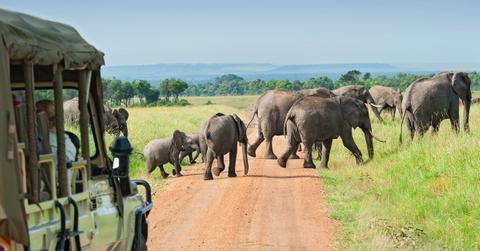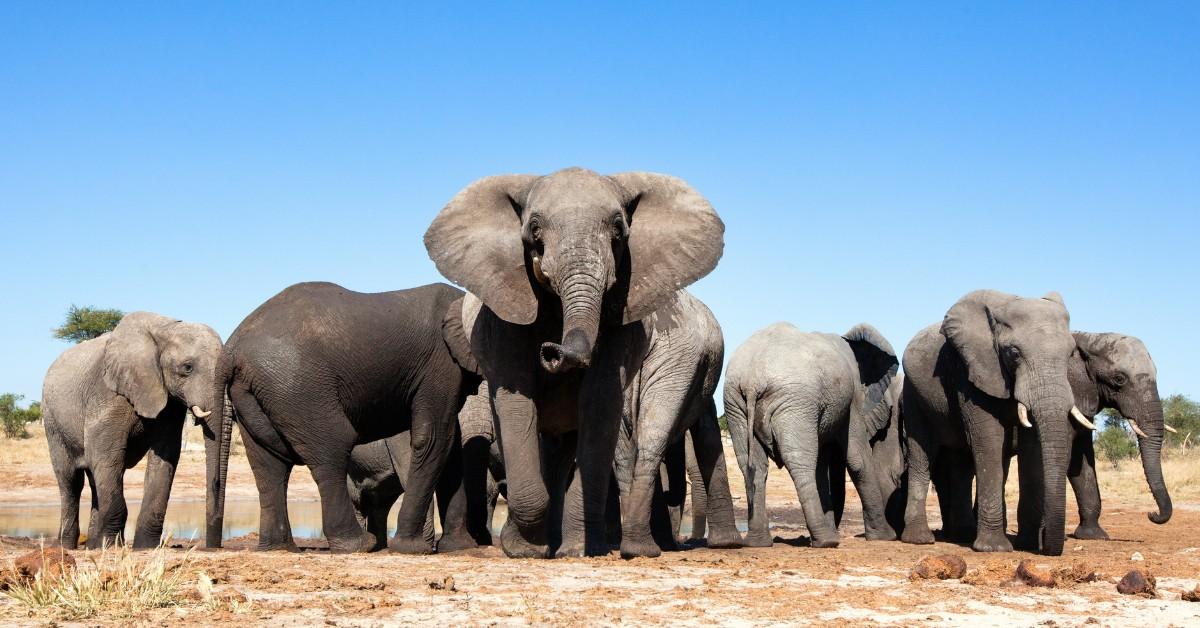American Woman's Death Prompts Concerns Over Human-Elephant Conflicts
A 79-year-old was killed during a ride through the Kafue National Park in western Zambia.
Published April 4 2024, 1:17 p.m. ET

Elephants are often thought of as big but harmless animals that slowly roam the countryside in search of food, water, and companionship. While this is true in their unbothered and secluded natural habitats, things can be a bit different when they encounter curious humans.
In fact, one unlucky woman was killed in a 2024 elephant attack in western Zambia, creating renewed concerns over just how docile these gentle giants actually are.
The 79-year-old's death occurred while she took part in a wildlife tour at Kafue National Park after an elephant charged the vehicle she was riding in. Harrowing video from the incident details what happened but not the why, prompting many people to wonder just how common these elephant attacks can be and whether or not they always turn fatal. We'll explore these questions and more as we try to discover what can turn these stately animals violent.

Do elephants attack humans often?
Elephant attacks may actually occur more often than you think. According to the World Wildlife Fund (WWF), over 200 people have been killed by elephants in the past seven years in Kenya, and those numbers only go up in other parts of the world. For example, India sees more than 100 elephant related fatalities a year.
When you consider that elephants can weigh up to 15,000 pounds, it seems like even an accidental interaction can end in tragedy. But sometimes, these interactions go south because of the elephants themselves. While elephants aren't naturally aggressive animals, there are certain times of the year when male elephants become more brazen.
The Call to Conserve says this is especially true of male elephants in musth, a state of increased testosterone during their mating season.
Why do elephants attack cars and humans?
Other than stumbling across an elephant in musth, there are a few other reasons elephants attack. According to the WWF, one of those reasons is the increased instances of human-elephant interaction. Between the ongoing reduction of natural elephant habitats and the increased interest in animal tourism, elephants are simply getting too much facetime with humans.
Additionally, like many mammals, elephants are highly protective of their families. When they feel threatened, the Tsavo Trust says they may act out. Lastly, there's the fight over resources. Elephants need a great deal of land and food to survive. With the ever-expanding human population, sometimes they directly compete with humans for crops, water, and the spaces used by developing communities.
Wildlife safaris aren't as harmless as you might think, and zoos are even worse for animals' physical and emotional health. If you must visit animals in captivity or on a game preserve, there are a few extra steps you can take to keep yourself and those you're with safe:
- Never leave your car during an encounter, as illustrated in a video shared by Earth Touch News Network.
- Remember that elephants are used to being the biggest animal around and aren't used to watching their surroundings for any other animals (or humans) that could end up underfoot, so watch your step!
- Most importantly, we should treat them with respect.
Don't tease, torment, or aggressively approach an elephant when you see one. Remember, while most elephant-human encounters go off without a hitch, those that don't almost always end badly for the elephants as well.